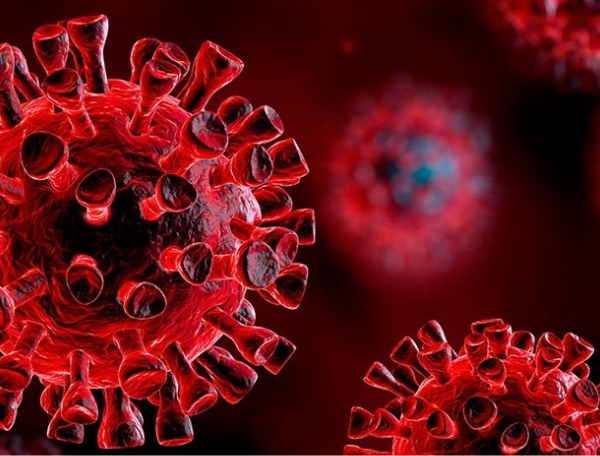


Cardiovascular disease (CVD) mortality rates have decreased more than 70% since the 1960s due to medical advancements.
However, some groups have benefitted from these gains more than others, contributing to an array of heart health disparities. So, how can we improve these disparities and achieve equitable cardiovascular care?
Houston Methodist researchers are looking beyond clinic walls to find out.
The Expansive Impact of SDoH
“Our aspirations and pursuit of health does not start and end in the clinic,” explained Khurram Nasir, MD, MPH, Professor of Cardiology. “Providers must account for the conditions in which people live, learn, work and play, now broadly known as the social determinants of health (SDoH).”
As it turns out, these social conditions can have a profound impact on health outcomes and quality of life, independent of clinical risk factors. In fact, research suggests that SDoH accounts for approximately 80% of health outcomes in the US.

Khurram Nasir, MD, MPH
These staggering statistics have motivated Nasir to design some of the nation’s most comprehensive and innovative cardiovascular research studies that illuminate the expansive health impacts of SDoH.
The results of these studies will be used to accomplish two goals: integrate SDoH data into clinical decision support systems and support the development of a health care system that addresses patients’ clinical and often concurrent social needs—a phenomenon Nasir and his team refer to as, “cumulative social risk.”
SDoH domains that impact patients’
heart health and mortality risk:
Economic instability
Low health literacy and education level
Lack of access to care (including affordable health insurance)
Scarcity of adequate transportation
Food insecurity
Neighborhood and built environment
Social and community context
SDoH domains that impact patients’
heart health and mortality risk:
Economic instability
Low health literacy and education level
Lack of access to care (including affordable health insurance)
Scarcity of adequate transportation
Food insecurity
Neighborhood and built environment
Social and community context
However, to effectively reduce patients’ cumulative social risk, researchers must better understand cumulative social risk as an upstream predictor of downstream health outcomes.
Filling this knowledge gap requires overcoming common study limitations, such as a limited number of SDoH variables that do not comprehensively capture the health impacts of concurrent social needs, and a lack of incident risk longitudinal data for CVD and other leading health outcomes.

Our aspirations and pursuit of health does not start and end in the clinic. Providers must account for the conditions in which people live, learn, work and play, now broadly known as the social determinants of health (SDoH).

Khurram Nasir, MD, MPH
Professor of Cardiology
Breaking Down the Data
Zulqarnain Javed, PhD, MBBS, MPH
Enter Zulqarnain Javed, PhD, MBBS, MPH, Assistant Professor of Population Health in the Department of Cardiology at Houston Methodist.
Working closely with Nasir, Javed pioneered the development of novel SDoH frameworks and risk indices to address these common study limitations.
One such development includes the polysocial risk score, a tool used to measure the potential health impacts of more than 40 SDoH variables—a massive step forward in better understanding how cumulative social risk serves as a predictor for cardiovascular health outcomes.
For example, in Nasir and Javed’s latest study in the American Heart Journal, the pair used the polysocial risk scoring approach to investigate the impact of cumulative social risk on all-cause and atherosclerotic cardiovascular disease (ASCVD) mortality risk.
The nationally representative study revealed that the more social disadvantages patients face, the higher their all-cause and ASCVD mortality risk.
This pattern was observed consistently for both adults with and without existing ASCVD, as well as across gender and racial/ethnic subgroups. The pattern also remained evident even after adjusting for traditional risk factors of heart disease, such as obesity, diabetes, smoking and dyslipidemia.
These significant study results add to the growing body of evidence that addressing social disadvantages is key in mitigating health and mortality risk disparities.
“If we have any aspirations of achieving health equity without focusing on SDoH, we are flying blindly,” Javed said.
AAMR = Age-Adjusted Mortality Rates
ASCVD = Atherosclerotic Cardiovascular Disease
Using the SDoH risk index, patients were divided into quartiles with the most favorable (i.e.., lowest social disadvantage) SDoH scores in the 1st quartile (Q1), and the most unfavorable (i.e., highest social disadvantage) scores in the 4th quartile (Q4). Study data revealed that the more social disadvantages patients face, the higher their risk for all-cause and ASCVD mortality, even after adjusting for gender, racial/ethnic subgroups and traditional risk factors for heart disease.
Future Efforts
This novel study is just another step forward for Nasir and Javed, who have become quite the “dynamic duo.”
The pair have published more than 50 cardiovascular SDoH studies that have garnered national attention for their inventive approaches to research challenges. They are also actively engaged in innovative translational projects to address SDoH at the community level.
One such project involves working with top health care systems, including Yale School of Medicine, Massachusetts General Hospital, and Sentara Healthcare on a $19 million study funded by the Patient-Centered Outcomes Research Institute (PCORI).
This multi-center, national study seeks to address social needs and optimize hypertension management in underserved patient populations in New Haven, CT; Hampton Roads, VA; Boston, MA; and Houston, TX via a novel telehealth, health advocate and community health worker model.
Nasir and Javed’s research has also been incredibly helpful in developing Houston Methodist’s own SDoH screening program, which screens patients for social needs and informs efforts to connect them with community-based agencies that can help address those needs. The program is in its pilot stage but shows promise for improving health outcomes in the next few years.
Through these collaborative projects, Nasir and Javed hope to inspire a more equitable U.S. health care system.
If we have any aspirations of achieving health equity without focusing on SDoH, we are flying blindly.
Zulqarnain Javed PhD, MBBS, MPH
Assistant Professor of Population Health, Cardiology
While the humble pair are proud of these accomplishments, Nasir and Javed have no plans to slow down. They’re already in the process of using artificial intelligence to enhance the polysocial risk score’s capabilities.
“We are delighted to be part of Houston Methodist and take what we have created and implement it into the real world,” Nasir said. “We are very happy that there is a strong belief and investment in our research.”
In a final note, Nasir added that if the long-term goal is to achieve health equity, policymakers, community members, health care providers, researchers and other key stakeholders must unite to create systemic change.
“It's sobering to realize that the current health care system is not set up to provide holistic care, which can reduce the development of chronic disease,” Nasir noted. “We must adopt a new perspective on health care. It’s our social responsibility.”
See Nasir and Javed’s other research publications.
Muhammad Haisum Maqsood, Ryan Nguyen, Ryan Chang, Harun Kundi, Kobina Hagan, Sara Butt, Anoop Titus, Adnan A. Hyder, Umair Javed, Sadeer Al-Kindi, Michael J. Blaha, Elias Mossialos, Khurram Nasir, Zulqarnain Javed. Unfavorable social determinants of health and mortality risk by cardiovascular disease status: Findings from a National Study of United States Adults. American Heart Journal, Volume 267, 2024, Pages 95-100. ISSN 0002-8703. https://doi.org/10.1016/j.ahj.2023.10.006.
Callie Rainosek, MS
April 2024








